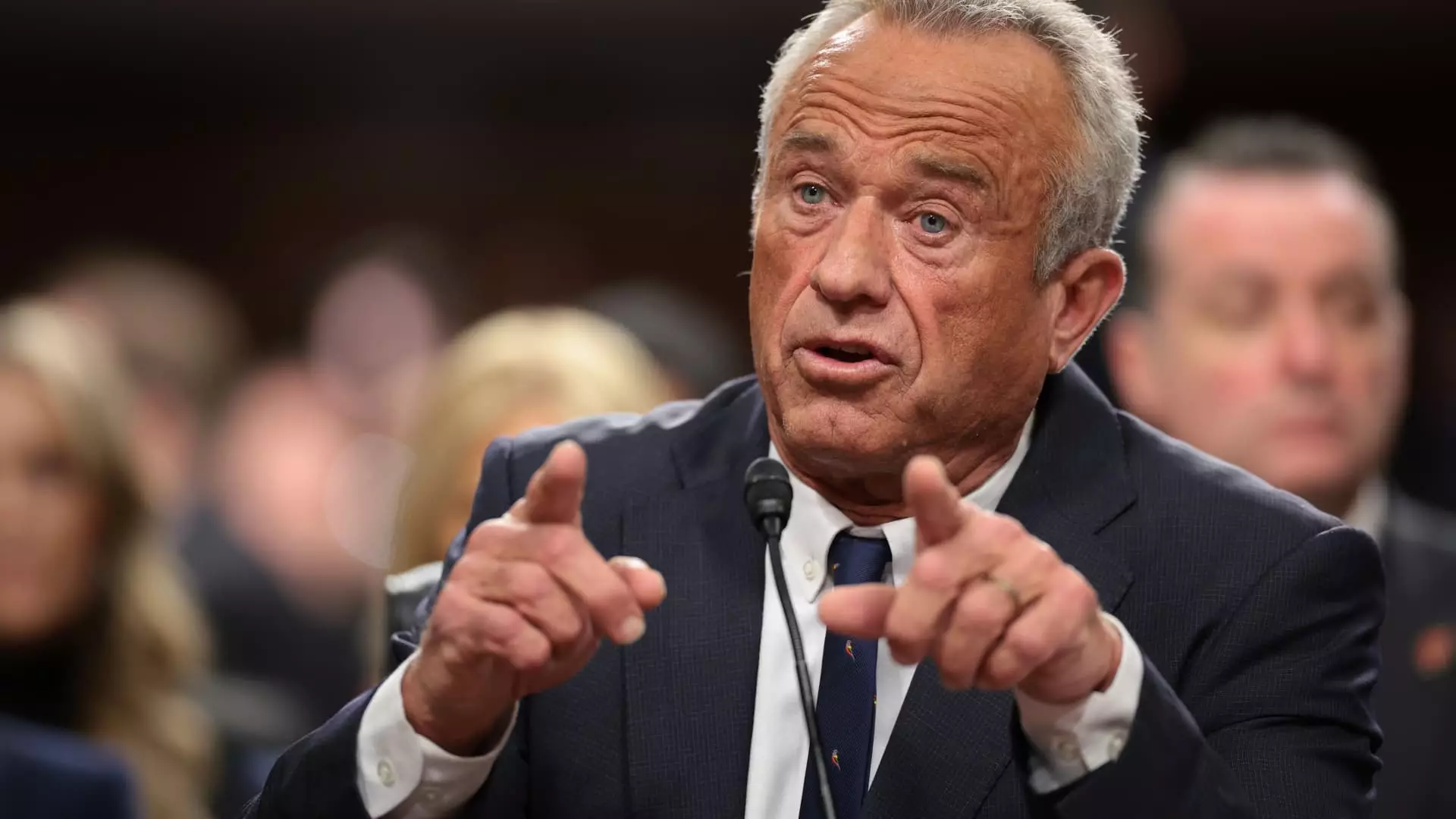In recent conversations within the corridors of power, Health and Human Services Secretary Robert F. Kennedy Jr. took a bold stance against the detrimental ingredients permeating America’s food system. His urgency to eliminate these harmful substances signals a conscientious shift in policy and an acknowledgment of consumer health as a priority. Sadly, it instinctively raises the question: why has this battle against toxic food additives taken so long? The current momentum stirs hope for a healthier society but also casts a shadow on the past complacency observed in regulatory bodies. Shall we wait for another virulent strain of unhealthy products, or can we initiate change before it spirals into chaos?
Kennedy’s position, equating food safety with national health, positions him at the intersection of public welfare and corporate accountability. His insistence on working with major food companies like PepsiCo and Kraft Heinz demonstrates a willingness to balance the scales—recognizing that collaboration might yield better results than heavy-handed regulation. Yet, does merely sitting around the table with corporate giants inspire genuine reform, or is it a mere public relations exercise?
The Corporate Response: Will They Step Up?
The reception of Kennedy’s initiatives by industry leaders is tepid yet hopeful. Executives from some of the largest food corporations indicated their readiness to engage; however, skepticism lingers. Has there been a genuine commitment to altering production practices, or are these simply lip service? A “constructive conversation” devoid of real follow-through could succumb to the continuous cycle of inaction that many regulatory efforts have faced in the past.
A note of caution feels warranted when evaluating the sincerity of corporate environmental and health claims. Often, marketing strategies highlight healthy options while obscuring the unhealthy ingredients lurking in the shadows. Can Kennedy withstand the tidal wave of resistance that may arise should he push too hard against the entrenched interests of the food industry? Furthermore, his track record on vaccine skepticism introduces an intriguing dynamic; the tension between public trust and corporate pressure could make or break his efforts to enact real change.
Identifying the Real Problems: A Poisonous Legacy
Drifting from the urgency of removing artificial dyes, one must consider a broader tapestry of what constitutes “toxic” in our food. Kennedy appears driven by a crusade to tackle chronic diseases that can largely be traced back to what dominates supermarket shelves. With childhood obesity at an all-time high and chronic illnesses on the rise among young Americans, the linkage to food quality becomes indisputable.
Against this backdrop, one might ask if Kennedy’s efforts go far enough. Simply pointing fingers at dyes misses deeper issues of food equity and accessibility. Family staples filled with empty calories are not just harmful but serve to trap lower-income families in a cycle of poor health. Eliminating artificial ingredients is necessary, but it is a surface-level fix to a multifaceted dilemma. Should we not also advocate for the incorporation of affordable, nutritious options for all citizens, not just those with the privilege to choose?
The Future of Food Policy: A Window of Opportunity?
Kennedy’s take on public health, juxtaposed against an alliance of drug and food companies, resonates well with those who see a corrupt industry at work. His ambition to pivot the focus of public health policy from medicinal solutions back to nutritious food is commendable; yet, it beckons a call to vigilance. Will proper safeguards be in place to prevent monopolistic behaviors emerging from the hunger for profit in a post-regulatory environment?
The bureaucratic machinery will need careful examination, especially as Kennedy restructures advisory roles within health agencies. Impacts on vaccination policies notwithstanding, one cannot ignore the chilling effect his approach may have on scientific consensus in public health. Are we on the precipice of dismantling decades of progress in healthcare? As Kennedy charts this ambitious course, we must remain mindful of the balance necessary between blockchain transparency and the freedom of choice in food consumption.
In this pivotal moment, the crossroads between corporate influence, public health, and the ethics of governance defines the next phase of the food industry. Without collective accountability and sustained consumer advocacy, Kennedy’s aspirations may risk remaining lofty promises rather than established precedents.

